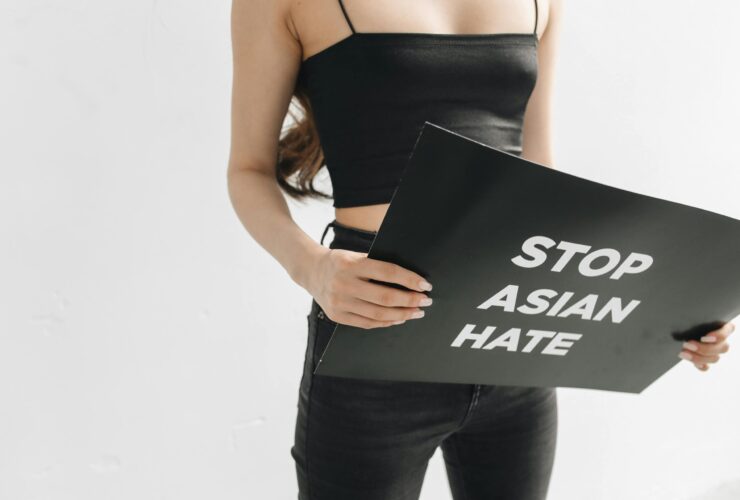Mental health conditions like OCD (Obsessive-Compulsive Disorder) and Bipolar Disorder are often misunderstood, leading to stigma and misdiagnosis. At the same time, burnout is becoming increasingly common, especially among professionals and caregivers.
Below are some key insights on OCD, Bipolar, and Burnout –

1. Understanding OCD and Bipolar Disorder: Breaking the Myths
One of the biggest challenges in mental health care is misdiagnosis. OCD and Bipolar Disorder often get confused because of overlapping symptoms. However, they are fundamentally different conditions that require distinct treatment approaches.
Common Myths & Misconceptions:
🚫 Myth: OCD is just about cleanliness and order.
✅ Reality: OCD is characterized by intrusive, distressing thoughts and compulsions that go beyond cleanliness, such as excessive checking, reassurance-seeking, or intrusive fears about harm.
🚫 Myth: Bipolar Disorder is just mood swings.
✅ Reality: Bipolar Disorder involves distinct manic and depressive episodes, which are far more intense than typical mood changes.
🚫 Myth: Therapy alone can “cure” these conditions.
✅ Reality: While therapy is essential, medication and structured routines often play a crucial role in treatment, especially for Bipolar Disorder.
🔍 Key takeaway: If you’re experiencing symptoms, work with a specialist who understands the nuances of these conditions. Our stress management therapists in Los Angeles, CA, recognize that proper diagnosis is the first step toward effective treatment.
2. The Importance of Creating a Safe Space in OCD and Bipolar Disorder Therapy
Unfortunately, many people hesitate to seek therapy because they fear judgment. Robyn emphasizes that a good therapist doesn’t just offer advice—they create a safe, nonjudgmental space where clients can explore their struggles openly.
🗣 What to expect from a supportive therapist:
- They listen without shame or stigma.
- They help differentiate between normal emotions and clinical symptoms.
- They empower clients to take an active role in their healing process.
💡 Pro tip: If you’re new to therapy, don’t be afraid to ask potential therapists about their experience with OCD and Bipolar Disorder. Finding the right fit is essential.

3. Burnout: Recognizing the Warning Signs & Preventing It
Burnout isn’t just about being tired—it’s a chronic state of emotional, physical, and mental exhaustion. Many professionals, especially those in caregiving roles, push themselves too hard until their bodies and minds force them to stop.
🔥 Signs of Burnout:
- Constant fatigue (even after resting)
- Increased irritability or detachment
- Physical symptoms like headaches or digestive issues
- Feeling disconnected from your work or personal life
🛠 Practical Strategies to Avoid Burnout:
✅ Set realistic expectations – You don’t have to do everything at 100% all the time.
✅ Create routines that include breaks and personal time.
✅ Stay connected with community and support networks.
✅ Pay attention to your “check engine light” – Your body often signals when it’s time to slow down.
“You can’t pour from an empty cup. Taking care of yourself is not selfish—it’s necessary.“
– Robyn Tamanaha, LMFT
Final Thoughts: Embracing Mental Health with Compassion
Whether you’re navigating OCD, Bipolar Disorder, or burnout, the key is awareness, education, and self-compassion. Additionally, seeking help from a reputable therapy clinic isn’t a sign of weakness—it’s a step toward empowerment and well-being.

These key points are given and explored in depth in our latest podcast episode with Robyn Tamanaha, LMFT. We discuss misdiagnosis, treatment options, and actionable strategies to maintain a balanced, fulfilling life.
🎧 Listen to the full conversation with Robyn Tamanaha to dive deeper into these insights.💛
Follow Robyn’s work:
Follow Yellow Chair:
- Entwine Community: https://entwinecommunity.org/
- Yellow Chair Collective: https://yellowchaircollective.com/
- IG: https://www.instagram.com/yellowchaircollective/?hl=en
- TikTok: https://www.tiktok.com/@yellowchaircollective
Seek An Asian American Therapist at Yellow Chair Collective in Los Angeles or New York
If you are seeking therapy specifically tailored to your needs, consider reaching out to the therapists at Yellow Chair Collective. We understand that there may be unique contextual factors that may influence your experiences.
At our Los Angeles, CA, and New York City, NY-based therapy practice, we have many skilled, trauma-informed, and culturally sensitive therapists who can provide an empowering therapeutic experience. For your added convenience and simplicity, we offer online therapy for anyone in the state of California or New York. We know that navigating your mental health journey can be challenging, and we want to support you along the way. Follow the steps below to begin.
- Fill out the contact form to get connected with us.
- Get matched with one of our culturally sensitive therapists.
- Start the next step in your healing journey today.
Other Services at Yellow Chair Collective in California and New York
There are many options for treatment using online therapy in California and New York, it just depends on what you need. And while we certainly serve Asian American folks, we also work with individuals from other cultures, too. Whether you’re needing support in overcoming anxiety, burnout, trauma, or PTSD, we can help. Likewise, we serve teens and couples in need of support, too. So when you start online therapy with us, you can bring your whole self, including past struggles, cultural impacts, and more.






